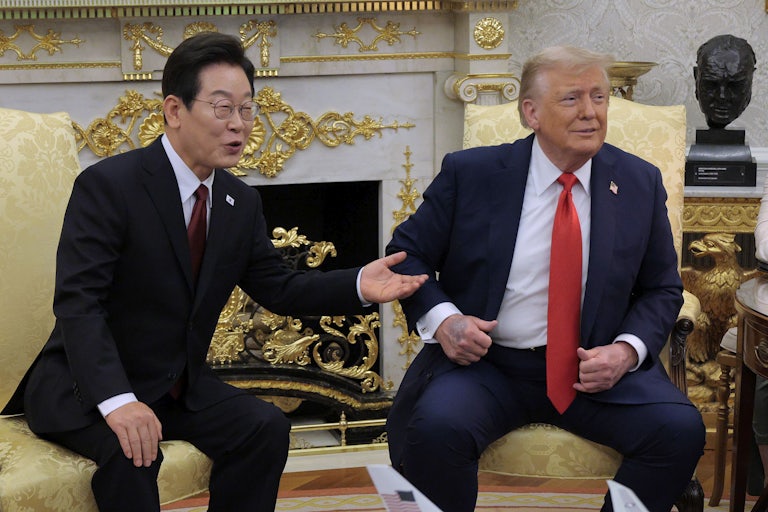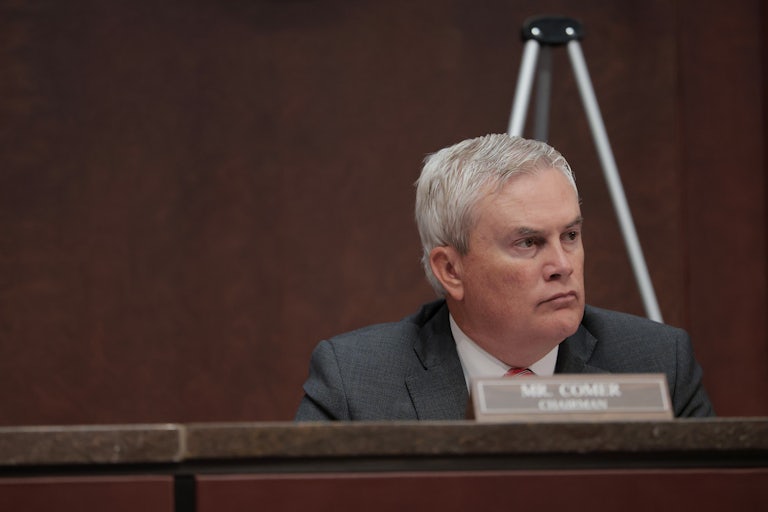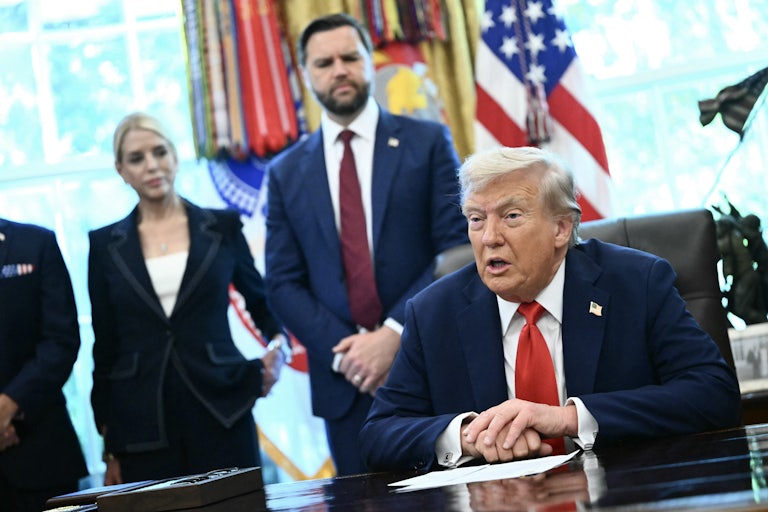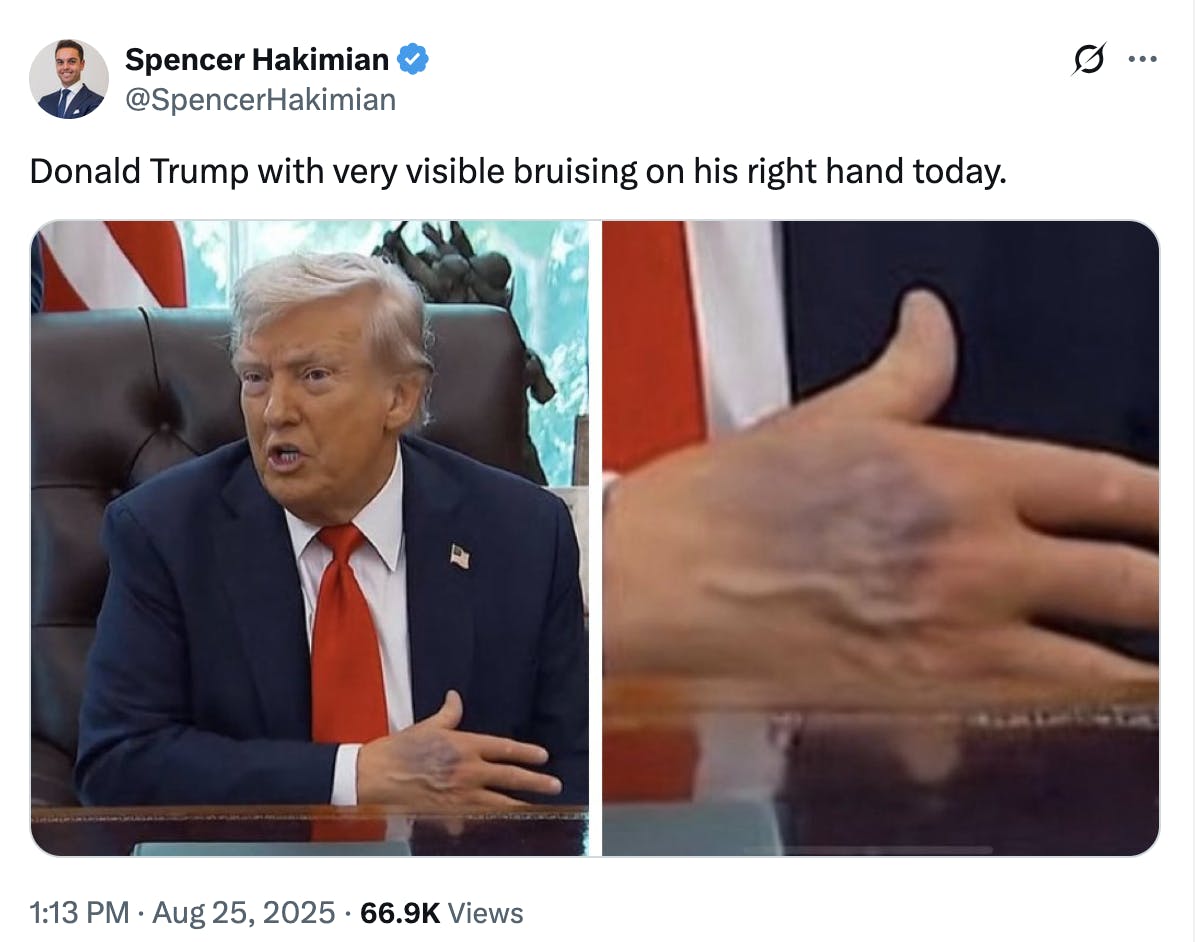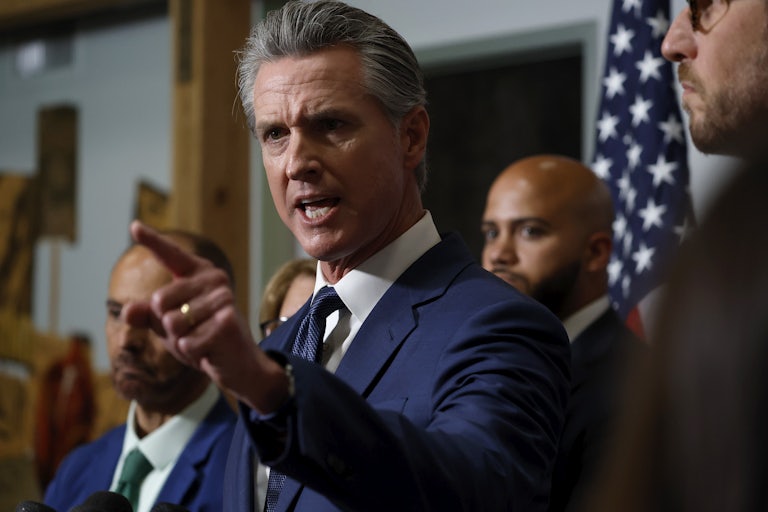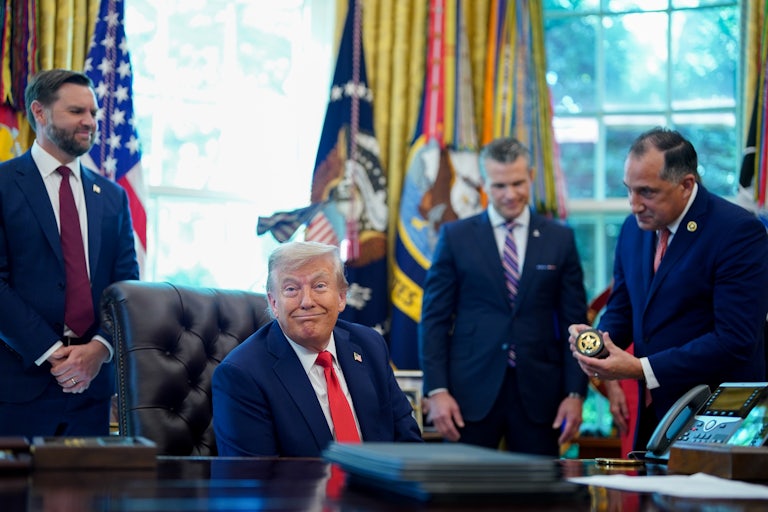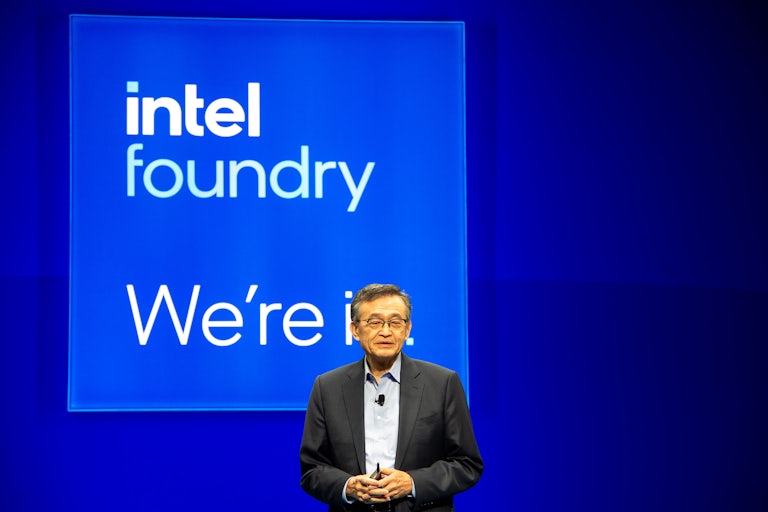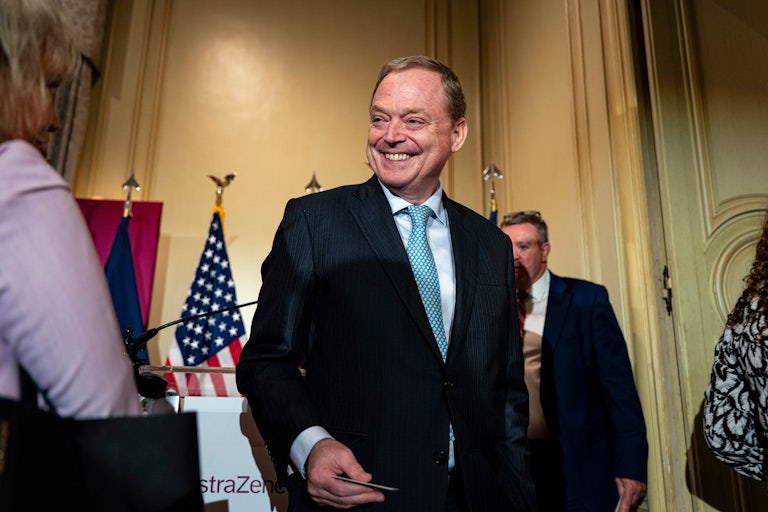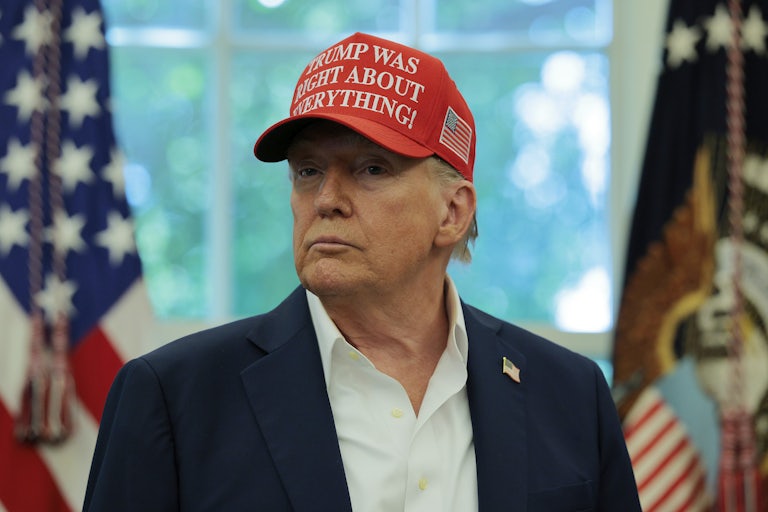Trump Pulls From Dictator Playbook and Hangs Giant Banner of His Face
How much did the government spend on this banner of Dear Leader?
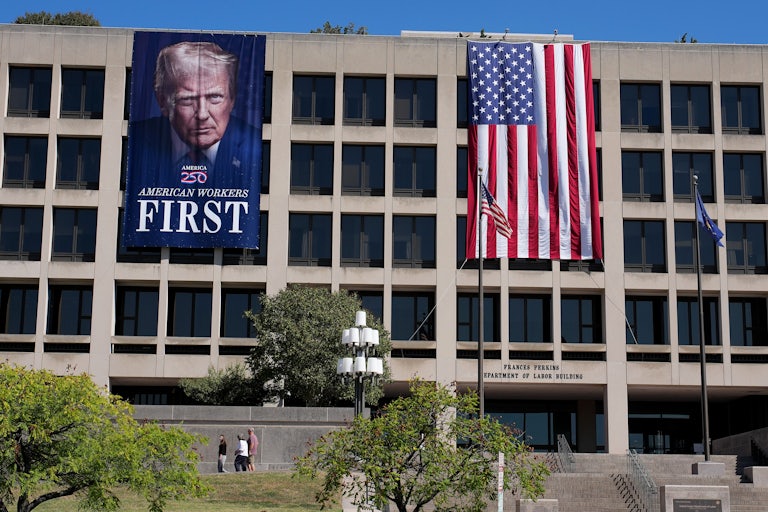
On the same day that Donald Trump said many Americans yearn for a dictatorship, his administration took a page from the book of dictators everywhere and unfurled a giant banner of the president’s face on the facade of the Department of Labor.
The banner, which features Trump’s steely second inaugural portrait, as well as the logo for Trump’s America 250 programming and the motto “American Workers First,” currently drapes over the windows of three stories of the building, according to photos posted online. Beside it are an American flag and a portrait of Theodore Roosevelt with the same text.
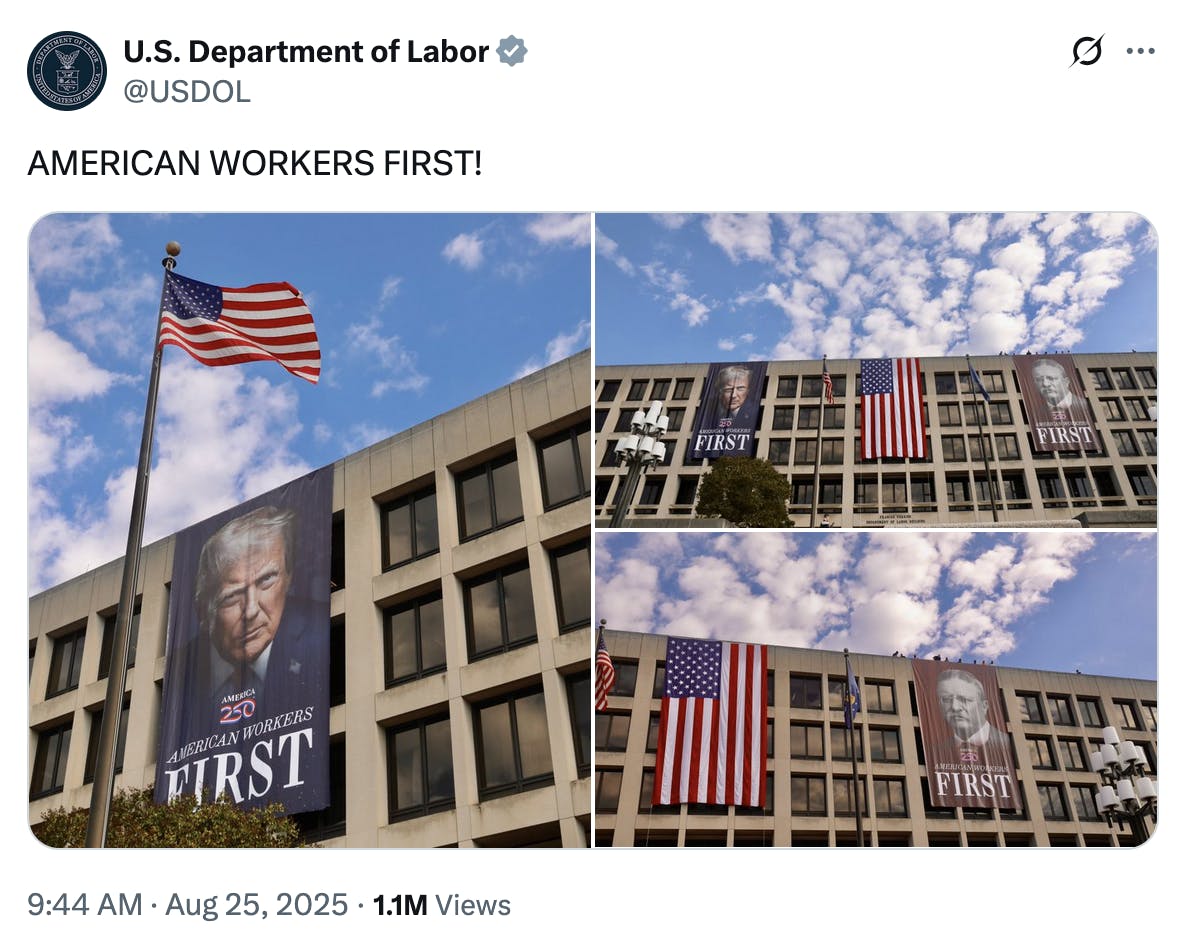
The department on which the banner hangs, under Trump, has undergone drastic cuts and pursued an agenda hostile to unions and workers.
Remarkably, this is not the first time a government building has displayed Trump’s visage. A banner with the same Trump presidential portrait, alongside one of Abraham Lincoln, was hung on the Department of Agriculture building in the spring, drawing comparisons to Saddam Hussein and Kim Jong Un.
As Trump’s scowl looms, Big Brother–style, over Washington, D.C., the president continues his federal takeover of the nation’s capital, usurping local law enforcement and pushing a draconian military occupation, with no end in sight.
